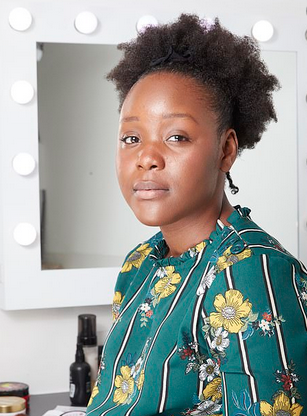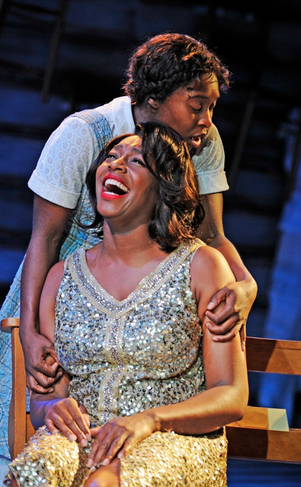You don’t have to be a serial killer to play Hannibal Lecter. And you don’t have to be straight to play straight, as Jonathan Bailey recently enthusiastically proved on Bridgerton. It’s not for nothing that it’s called acting.
Bailey recently had a conversation with Ian McKellen in Attitude magazine, discussing changing attitudes towards an actor revealing their sexuality, and here’s part of that discussion:


McKellen: It used to be that if you were gay, if you came out, then you would jeopardize the whole project — particularly if it’s a television show. American television series would find that people in the Bible Belt objected, or that the advertisers did not want it to be sullied by your sexuality…
Bailey: …….It’s interesting, isn’t it? Because we’re saying about when you come out, that’s the beginning of a new chapter in growth, right? But for me, I don’t think I’ll ever know where I fit in, in terms of society, because it’s ever-changing.
I don’t want to talk about my versatility in the bedroom. I’ll talk about my versatility on stage. For me, it’s about visibility. That’s it. Why is there this common assumption that because we’ve decided to gift people with the knowledge that we’re gay, it means that we’re actually then prepared to basically squat over a mirror and show them our inner workings?
What do you hope for someone like me starting out on my career now? Playing straight characters, wanting to be visible, but also knowing that there are lots of things about my life that are personal, and I don’t want to cross that line. But visibility is key. What do you hope for someone like me going forward, and what are your worries?
McKellen: For the work, well, I just hope whatever you want from your work, the fact that you’re gay doesn’t impede it in any way. Honesty is the best policy for you. If people can’t cope with it…
Bailey: Then move on.
McKellen: But what I would hope for you is that your honesty about being gay, not having that secret, continues to bring you joy. But you place that, as far as your career is concerned, wherever you want it to be placed. You bring to the table, you bring to the workshop, you bring to the project, your life experience. And actually if you are gay, even now, you have experienced something about society which most people don’t have to bother about.
Bailey has broken new ground by being able to be both out and proud as a gay man, but also play a credibly heterosexual lothario at the same time.
In other words, he’s getting to have his (beef)cake and eat it, which is a rather marvellous thing.

Compare and contrast this with the self-limiting world that another young actor Seyi Omooba (pictured above) has constructed around herself, who in 2019 accepted the role of Celie in a revival of the musical The Color Purple at Leicester’s Curve (who were co-producing it with Birmingham Hippodrome; Curve will this month be producing an online reunion of this production, streaming from February 16 to March 7 — visit here to book).
Before the show went into rehearsal, a series of social media posts dating back to 2014 were exposed that revealed some strong personal beliefs around homosexuality, including that she did “not believe you can be born gay” and that homosexuality was wrong even “though the law of this land has made it legal”.
All of which was a problem, not least because the character she was due to play is revealed in the show (and the book it is based on) to have a lesbian relationship.
Following an outcry, Curve issued a statement: “Following careful reflection it has been decided that Seyi will no longer be involved with the production.” And her agents, Michael Garrett Associates Ltd (Global Artists), announced they would no longer represent her.
This week her case for religious discrimination and breach of contract has come up before the Central London Employment Tribunal. According to her own defence, put forward by Pavel Stroilov who is representing at the tribunal, she’d previously told her agents she would not play a gay role, and that in the production she was “never asked explicitly to play this character as a lesbian”.
Referring to the well-known Steven Spielberg film version of Alice Walker’s novel of the same title, he said,
“In the film the lesbian theme is not present at all, there is one kiss between the female characters which can be interpreted in all sorts of ways. It is in no way obvious and was never made clear to claimant that she was expected to play a lesbian character. It’s, with respect, absurd to suggest it’s for an employee, an actor, to go and inquire with an employer whether or not they interpret this play differently from Steven Spielberg.”
Actually, what is truly absurd is arguing this line of defence at all. She had not auditioned, after all, for the film of The Color Purple, but an entirely different stage adaptation; and it should be incumbent on an actor, not the producers, for her to do her own research about the role she was signing herself up for.

It’s not as if the show is brand-new; a cursory reading of the reviews of the Menier Chocolate Factory’s 2013 London premiere of the show (which starred Cynthia Erivo as Celie and Nicola Hughes as Shug Avery, pictured above), that subsequently transferred to Broadway, might have told her this. As Sam Marlowe described the trajectory of Celie’s life in a review for the Arts Desk,
Through pregnancies resulting in two babies mysteriously disposed of by Pa, forced marriage to the violent Mister, separation from her beloved sister and a wondrous discovery of love and sensuality with Shug Avery, the juke-joint singer who is an embarrassment to her preacher father and an irresistible siren to Mister and most of the other local men, Celie finally reaches contentment, independence and a sense of herself.
Alas, Omooba has failed to go on a similar journey as the character she was lined up to play. As Curve’s barrister Tom Coghlin put it to the tribunal,
“The role that she complains about being dismissed from is one that she would have refused to play in any event. Her choice was to resign or be dismissed and she chose to be dismissed.” Her stance, he said, constituted a “repudiatory breach of contract” and that her dismissal was therefore not “unwanted conduct”.
As Michael Vinsen hilariously tweeted about her failure to know what she might be playing put it,
It will be interesting to see how this now plays out in the rest of the tribunal hearing. Watch this space.
